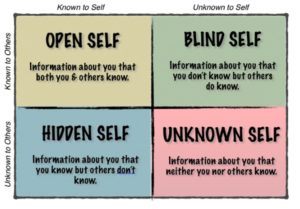
Authenticity: Key to Greatness
Over 25 years ago, I collaborated on the book, Adult Religious Education: A Journey of Faith Development, with Marie A Gillen and Maurice C. Taylor of the University of Ottawa. My chapter was entitled “Ethics and Authenticity: Implications for Practice.”
In summary, I wrote that ethics involves the integrity of the endeavor, including that of the leader. Authenticity means a commitment to openness, truthfulness, and transparency, which leads to trust. To be human is to need and to become willing to receive intimacy, bondedness, and connectedness. In short, to possess authenticity and practice ethical principles means to have made a choice to become civilized.
Becoming ethical simplifies life. It makes life pure and, therefore, authentic. Ethics is based on trust, and trust is based on trustworthiness. One cannot have one without the other.
In Honest to Greatness: How Today’s Greatest Leaders Use Brutal Honesty to Achieve Massive Success, business coach Peter Kozodoy explains how start-up entrepreneurs; small business owners; presidents of mid-sized companies; and the leaders of major corporations, such as Sprint, Quicken Loans, and Berkshire Hathaway, wield authenticity as a strategic technique to thrive. In this way, Kozodoy claims that authenticity is a value that becomes etched in the souls of their organizations.
Authenticity, unsurprisingly, works universally. It creates opportunities to ask more optimal questions, get more insightful answers, and overcome the roadblocks we face as leaders who often lie – sometimes to others but most frequently and egregiously to ourselves. Being authentic requires learning to get honest about what is going on in our industry community and then how we view others. Perhaps most importantly, it also requires becoming authentic with ourselves.
One way to achieve this level of authenticity is through applying what is called the Johari Window. It is one of the few psychological tools out there that places emphasis on “people skills,” such as behavior, empathy, collaboration, inter-group development, and interpersonal development. It’s a great model to use because of its simplicity and because it can be applied in a variety of situations and environments resulting in:
- Self-awareness
- Personal development
- Improved communications
- Effective interpersonal relationships
- Strong group dynamics
- Enhanced team development
- Effective inter-group relationships
The model works using four area quadrants. Anything we know about ourselves and are willing to share is part of our open area. Individuals can build trust between themselves by disclosing information to others. Learning about others from the information, they in turn disclose about themselves.
Any aspect that we do not know about ourselves but others within the group have become aware of is in our blind area. With the help of feedback from others, we can become aware of some of our positive and negative traits as perceived by others. We can then overcome some of the personal issues that may be inhibiting our personal or group dynamics within our team. There are also aspects of ourselves that we are aware of but may not want to share with others. This quadrant is known as our hidden area. This leaves just one area that is unknown to us or anyone else – the unknown area. By working with others, it is possible for us to discover hidden aspects of ourselves that we may never have known before.
Some examples of unknown factors are:
- An ability that is under-estimated or untried through lack of opportunity, confidence, or learning
- A natural aptitude that a person doesn’t realize they possess
- A fear or aversion that a person does not know they have
- Repressed or subconscious feelings,
Just like the sweet sound of authentic Stradivarius violins reflect perfect pitch, effective leaders must be authentic with themselves, get out of the way of their coworkers, and eliminate any barriers to the flow of information, time, energy, ideas, and innovation within their organization.
- About the Author
- Latest Posts
Vice President Emeritus for Learning Technologies Donald Smith, Ed.D, CPT, headed ME&A programs in learning, leadership, and performance enhancement. He stayed with the firm in his retirement, bringing more than 65 years of experience as a coach, designer, facilitator, evaluator, manager, educator, and organizational change architect in more than 40 countries. He is affectionately known as ME&A’s MENCH.





